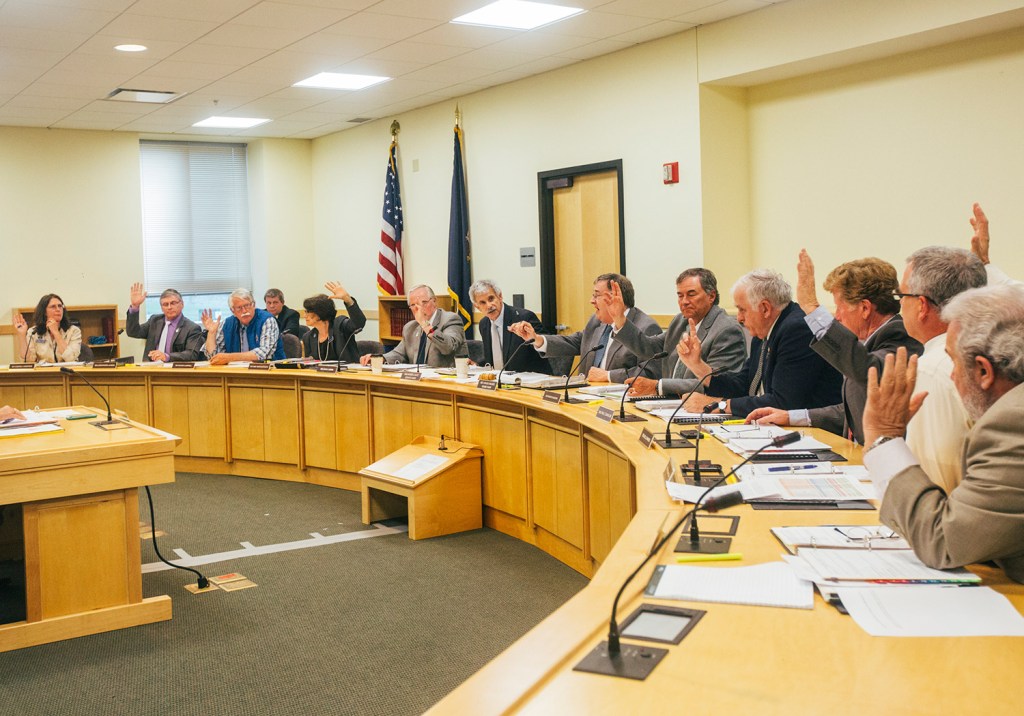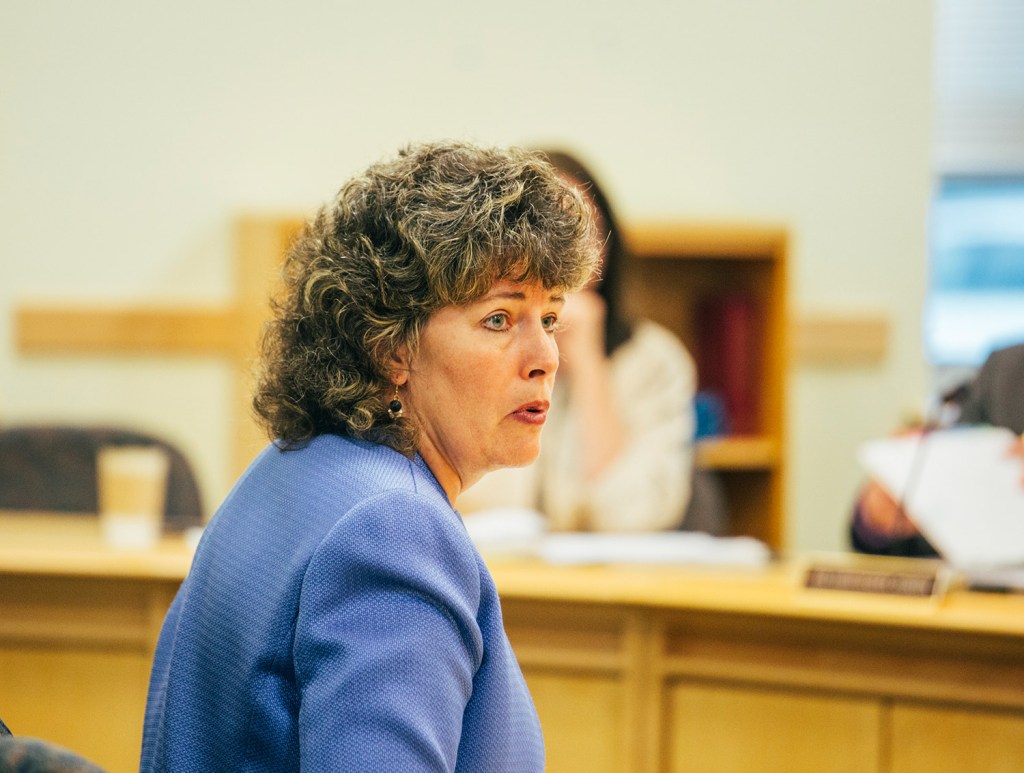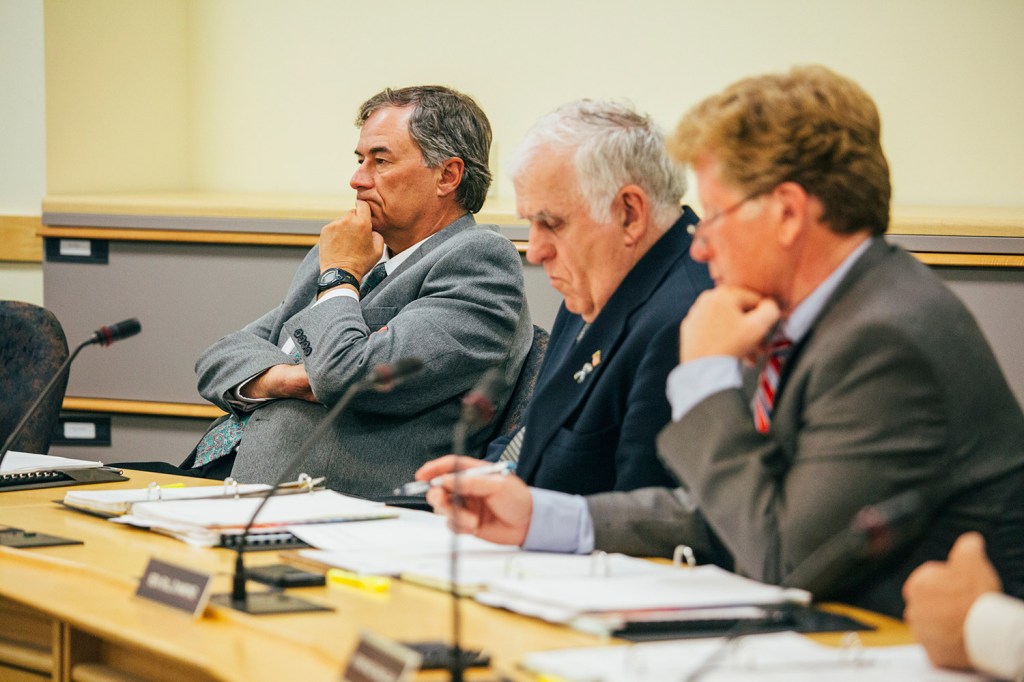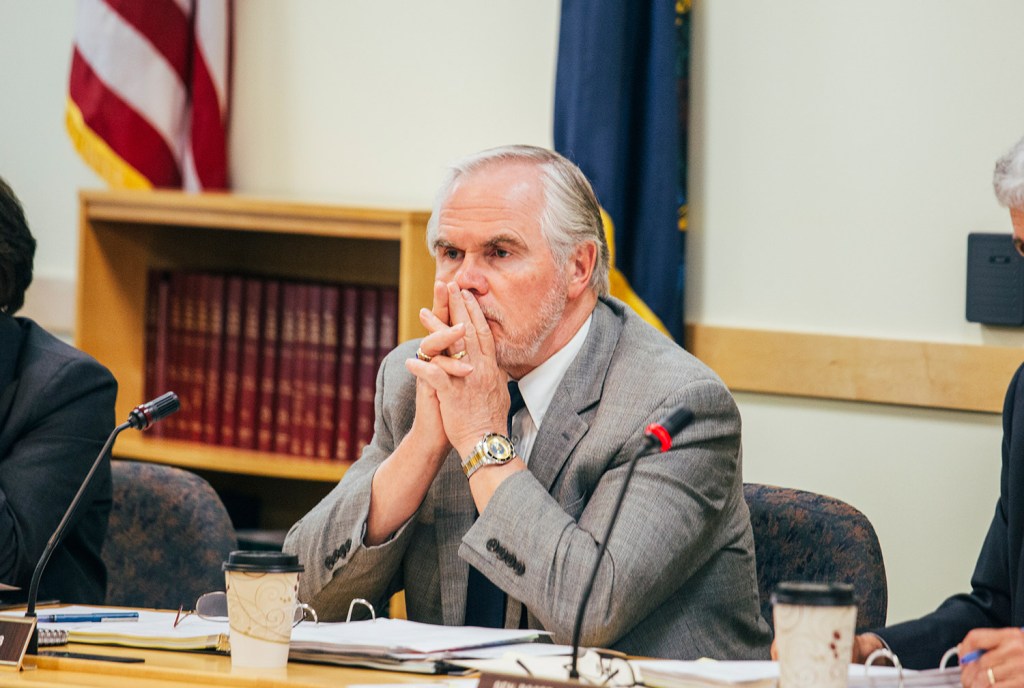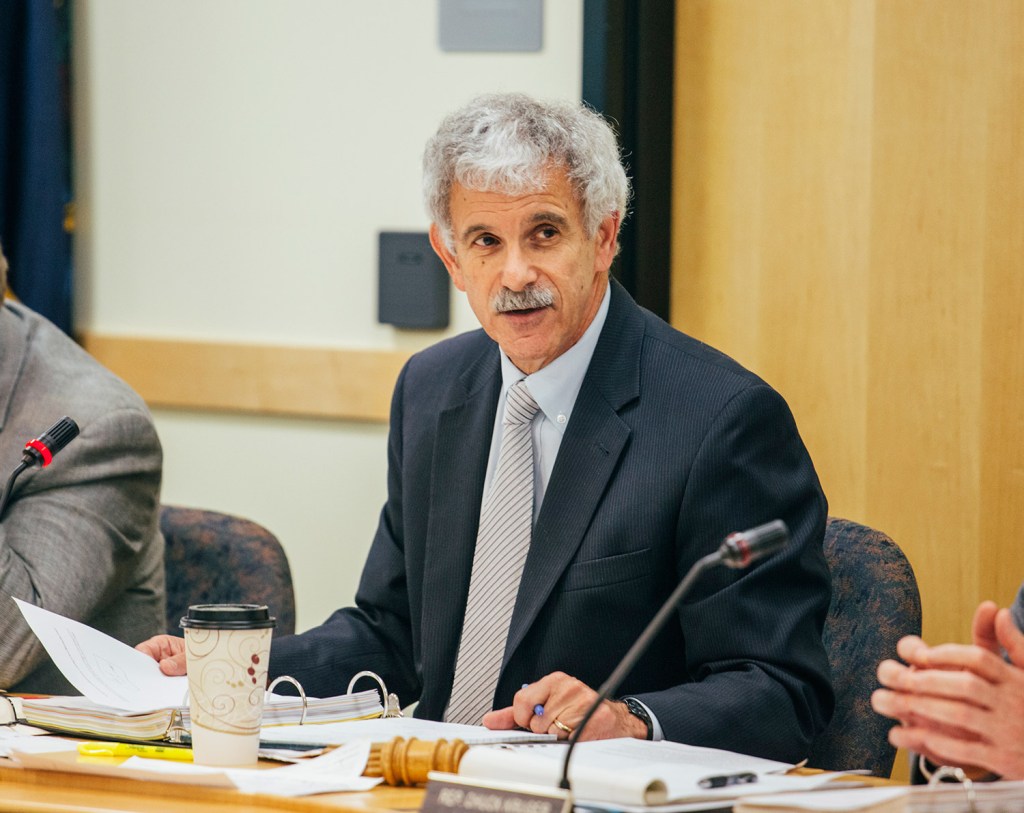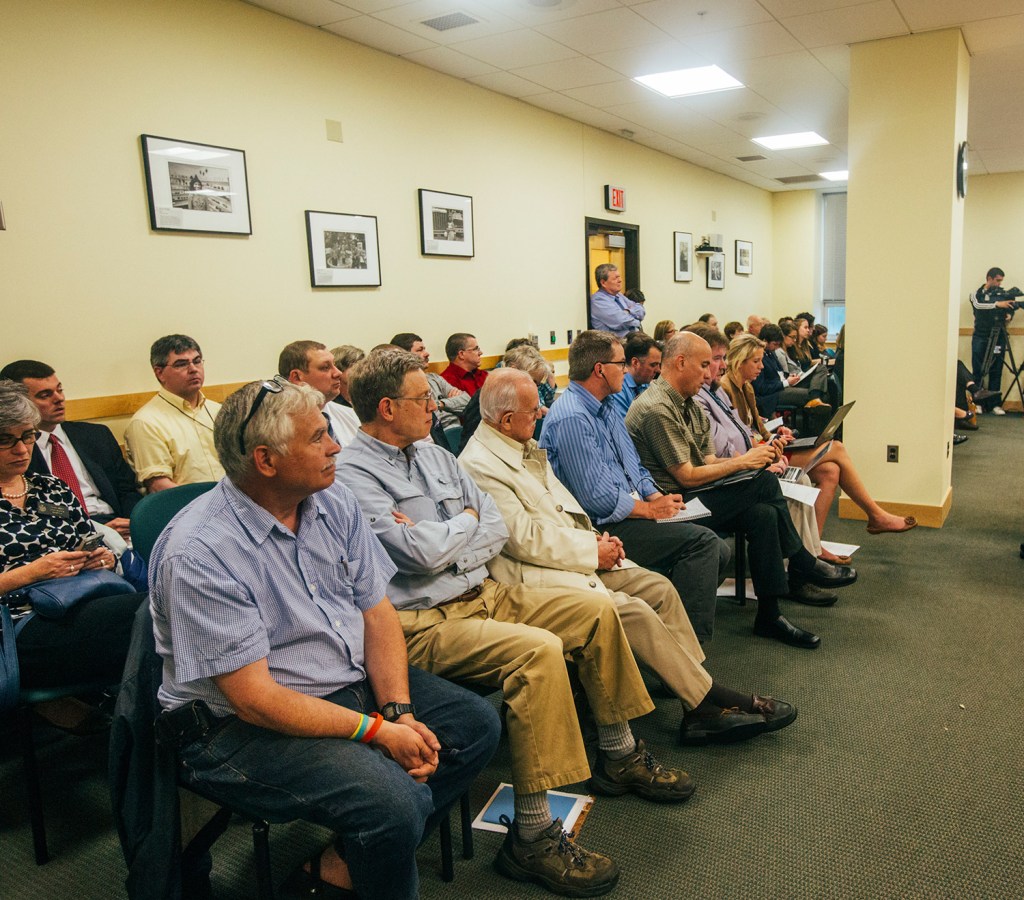AUGUSTA — The Legislature’s watchdog committee voted unanimously Wednesday to investigate Gov. Paul LePage’s threat to withhold state funds from a school for at-risk children unless it withdrew a job offer to Democratic House Speaker Mark Eves.
The probe will focus on whether changes were made in the flow of state funding to Good Will-Hinckley, a private school in Fairfield, and the effects of the Republican governor’s threat on the school’s hiring process with Eves.
The controversy rocked the State House last week and led some Democrats to call for the Republican governor’s impeachment.
The Office of Program Evaluation and Government Accountability, or OPEGA, will carry out the investigation and submit its findings to the six Republicans and six Democrats on the Government Oversight Committee. They could use the OPEGA findings to pursue sanctions against the governor or his administration.
The committee acted in response to requests for an investigation from several lawmakers, voting just hours after a letter from LePage’s chief legal counsel telling OPEGA that it doesn’t have the constitutional authority to investigate the governor became public. Cynthia Montgomery wrote to Beth Ashcroft, OPEGA’s director, on Tuesday, telling her that the agency has no oversight of the chief executive.
“As you are surely aware, OPEGA’s enabling statute clearly provides that OPEGA’s purpose is to provide ‘program evaluation of agencies and programs of state government,’ as well as other governmental and quasi-governmental entities,” Montgomery wrote. “Unlike such agencies, which exist via legislative enactment, the chief executive is a governing authority separate but equal to the Legislature itself.”
She added, “The governor and the exercise of his discretionary executive power are simply not subject to OPEGA’s jurisdiction and/or oversight. If members of the Legislature wish to ‘investigate’ the governor, they should look to the Constitution for the authority to do so.”
Ashcroft, the agency’s director, said the probe is within OPEGA’s jurisdiction. Sen. Roger Katz, R-Augusta, co-chairman of the oversight committee, said the scope of the investigation was spelled out in consultation with assistant Attorney General Linda Pistner. According to OPEGA’s governing statute, the Attorney General’s Office provides legal assistance to the agency.
“I remember hearing the governor saying that he was going to be the most transparent governor in history,” Rep. Chuck Kruger, D-Thomaston, the committee’s co-chairman, said of the letter Wednesday. “After reading this letter, I wonder what he has to hide.”
Katz, attempting to strike a balance over an issue that has pit LePage’s supporters against those concerned that the governor has overstepped, and which coincided with the close of a contentious legislative session, assured the committee that the purpose of the inquiry was to obtain “just the facts.”
“The events of the last few weeks involving Good Will-Hinckley are troubling,” he said. “As often happens in partisan politics, it seems like some people immediately go to their corners, getting ready to fight. But it’s also fair to say that most people in Maine just want to know what happened in a fair and open way.”
DECIDING INVESTIGATIVE AUTHORITY
Dmitry Bam, an associate professor who teaches constitutional law at the University of Maine School of Law, said that, generally speaking, the Maine Constitution gives the Legislature the power to conduct investigations of the governor, including probes that could lead to impeachment.
“Part of the Legislature’s power is to conduct investigations in support of its other powers,” Bam said. “With the power of impeachment comes the implied power to conduct an investigation to find the facts for that impeachment.”
Whether OPEGA can conduct such an investigation is unclear, he said. Bam said OPEGA’s ability to investigate LePage will largely depend on precedent, its enabling statute and whether a state agency – in this case the Department of Education – is part of the executive branch.
Eves has said the Good Will-Hinckley board told him that LePage had sent a handwritten note to chairman Jack Moore in which he threatened to pull $530,000 in state funding unless the school reconsidered its decision to hire Eves, who was supposed to start the $120,000-a-year job Wednesday.
LePage has acknowledged that he threatened to pull the funding for the school because he didn’t believe Eves, who has opposed charter school legislation, was the right fit for the private nonprofit and the charter school it operates, the Maine Academy of Natural Sciences.
LEPAGE DEFENDED, FACING LAWSUIT
Eves, who is considering suing the governor, has said that LePage “used the machinery of government and taxpayer dollars” to intervene in his hiring by a private employer.
Eves’ attorney, David Webbert, said Wednesday that he intends to file a federal civil rights lawsuit against LePage sometime after July 16, when the Legislature is scheduled to return to take up the last of LePage’s vetoes.
“The governor’s position that he is not accountable to the people’s elected representatives makes a federal civil rights lawsuit against the governor all the more important for protecting Maine’s government from illegal overreaching by an out-of-control governor,” Webbert said in a written statement in reaction to the letter from LePage’s lawyer.
But LePage also had his defenders Wednesday, including House Republican leader Ken Fredette of Newport, who issued a statement underlining the constitutional challenge raised by the governor’s legal counsel.
“Just as Gov. LePage has been accused of acting for political retribution, as opposed to exercising appropriate and reasoned discretion, I believe that a rush on our part to investigate the governor’s actions can be just as easily characterized, rightly or wrongly, as politically motivated,” Fredette said.
Good Will-Hinckley opened as a farm, school and home for needy boys in 1889. It launched the Maine Academy of Natural Sciences in 2011 – the first of five charter schools that have been approved in Maine – and also runs other educational and social services programs, some of which assist troubled youths. Had the hiring of Eves gone forward, he would have overseen the entire institution, including the charter school.
Good Will-Hinckley had an enrollment of 36 students this year, and enrollment at the academy was 76 students.
The state funding at stake pays room and board costs for students at the charter school. It comes from a pool of education funding within the state’s General Fund and the Department of Education, under a budget line controlled by the Department of Education and, by extension, the governor.
The $1.06 million in question is broken into two years, $530,000 in each fiscal year of the state’s two-year budget. It is referred to as “Center of Excellence for At-Risk Students/Choice and Opportunity Fund.”
LePAGE: THEY CAN’T INVESTIGATE ME
According to the Office of Fiscal and Program Review, the Legislature’s non-partisan budget office, lawmakers on the Legislature’s budget committee can appropriate money for specific programs, thus removing any discretionary authority by a particular agency or the governor. However, it is common for budget writers to discuss funding priorities with agencies and leave them some latitude for allocating the money.
That appears to have happened with the funding for Good Will-Hinckley, raising questions about whether acting Education Commissioner Tom Desjardins could become part of an OPEGA inquiry.
LePage, who was in Portland on Wednesday to endorse New Jersey Gov. Chris Christie’s presidential bid, was asked about the OPEGA inquiry.
“They can’t investigate me,” he said. “It’s in the Constitution.”
Send questions/comments to the editors.

